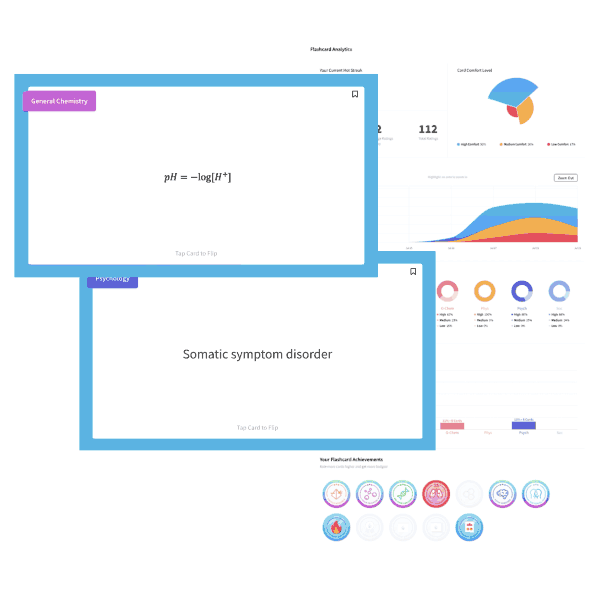All of the following are true regarding the function of neurons EXCEPT:
A. Hyperpolarization at the end of an action potential is one mechanism by which neurons limit the rate at which action potentials may fire.
B. The flow of sodium into the neuron depolarizes the membrane in the first phase of an action potential.
C. The transmitting neuron secretes neurotransmitters, such as serotonin or dopamine, into the synaptic cleft from its dendrites.
D. An action potential is initiated when the axon hillock reaches the threshold potential.
Click for Explanation
This question is testing your understanding of the function of action potentials and neuronal transmission of signals. Here, (A), (B), and (D) are all true. Since this is an “EXCEPT” question, the right answer is the one false statement: choice (C). A neuron generally secretes neurotransmitters, like serotonin or dopamine, from its axon (specifically, from its axon terminal, or synaptic bouton). Retrograde neurotranmission (the secretion of neurotransmitters from dendrites) is rare, occurring mostly with nitric oxide and cannabinoid neurotransmitters.
Want more MCAT practice?
We’ve got options for every schedule and learning style!
From the best online MCAT course created by top instructors with 524+ MCAT scores to the most representative full-length practice exams and private tutoring, we can custom tailor your MCAT prep to your goals!
Not sure which option is right for you? Schedule a free MCAT consultation with an MCAT expert using the form below. No obligation, just expert advice.
Search the Blog

Free Consultation
Interested in our Online MCAT Course, One-on-One MCAT Tutoring or Med admissions packages? Set up a free consultation with one of our experienced Senior Student Advisors.
Schedule NowPopular Posts
-
MCAT Blog What's on the MCAT?
-
MCAT Blog How to Review MCAT Full Lengths

Free MCAT Practice Account
Need great MCAT practice?Get the most representative MCAT practice possible when you sign up for our free MCAT Account, which includes a half-length diagnostic exam and one of our full-length MCAT practice exams.
Learn More






